Monthly Market Report: March 2023
Stock Markets Rally in March
Prepared by Brandon Yee, CFA, CAIA, and Thomas Connelly, CFA, CFP
Developed Markets Rebound
In the month of March, international developed stock markets returned 2.22%. The US and Japan recorded returns of 3.50% and 3.96%, respectively. Canada and the UK lagged other markets. International developed markets are up 8.02% YTD while the U.S. market is up 7.59%. International developed markets have outperformed on balance, benefiting from a weaker U.S. dollar, higher European earnings growth and lower valuations heading into this year. Markets were able to rebound despite the turmoil within the U.S. banking sector.
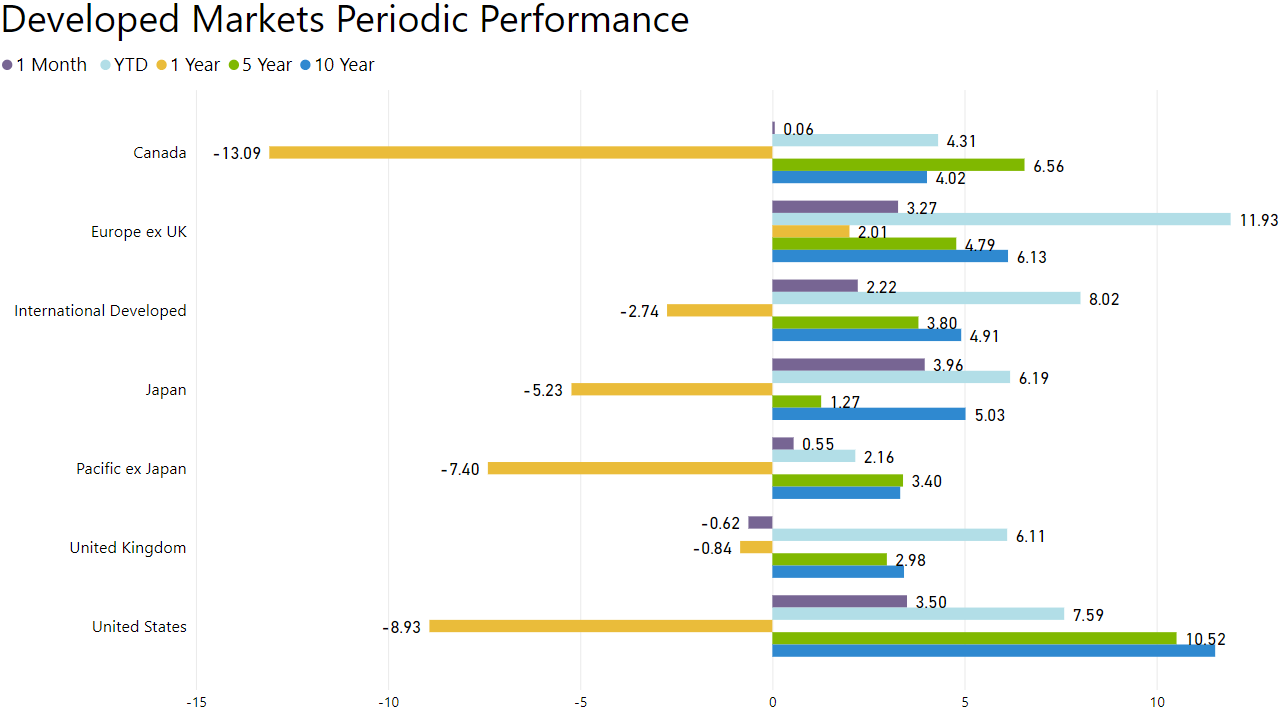
Broader emerging markets posted a 2.53% return for the month. China and Korea recorded returns of 4.52% and 4.84%, respectively. India and Brazil lagged other markets in March. China’s abrupt reversal of its zero-Covid policy has brightened the country’s economic outlook. Low valuations relative to the U.S. and international markets may help emerging market investors going forward.
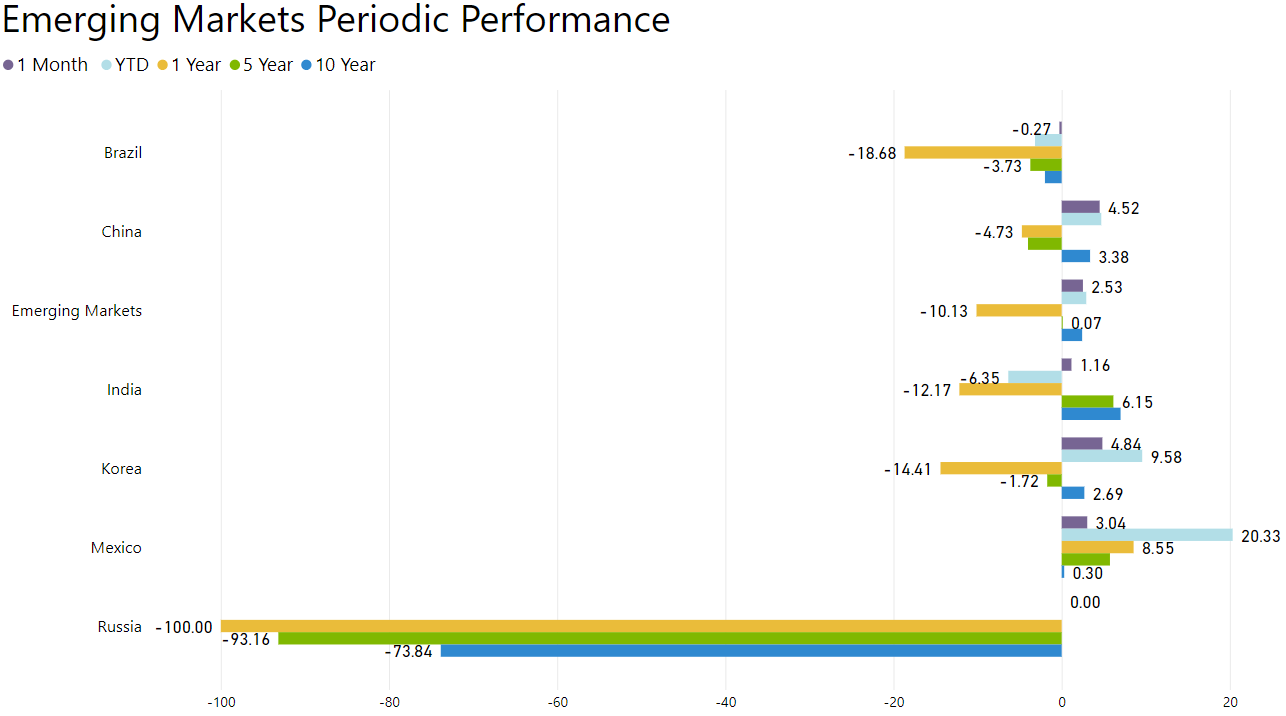
Information technology and telecommunications recorded returns of 10.31% and 8.92%, respectively, in March. Financials and energy lagged other sectors this month. The information technology sector has rebounded this year after its steep 2022 decline. Much of the rally in this sector has been due to retail investors buying these stocks as opposed to institutional investors. Increasing use of ODTE (zero days to expiry) options, the possibility of short covering and the gains restricted to only a few technology companies may make this rally short lived. Further tightening of monetary policy by central banks could create a tough environment for the information technology sector.
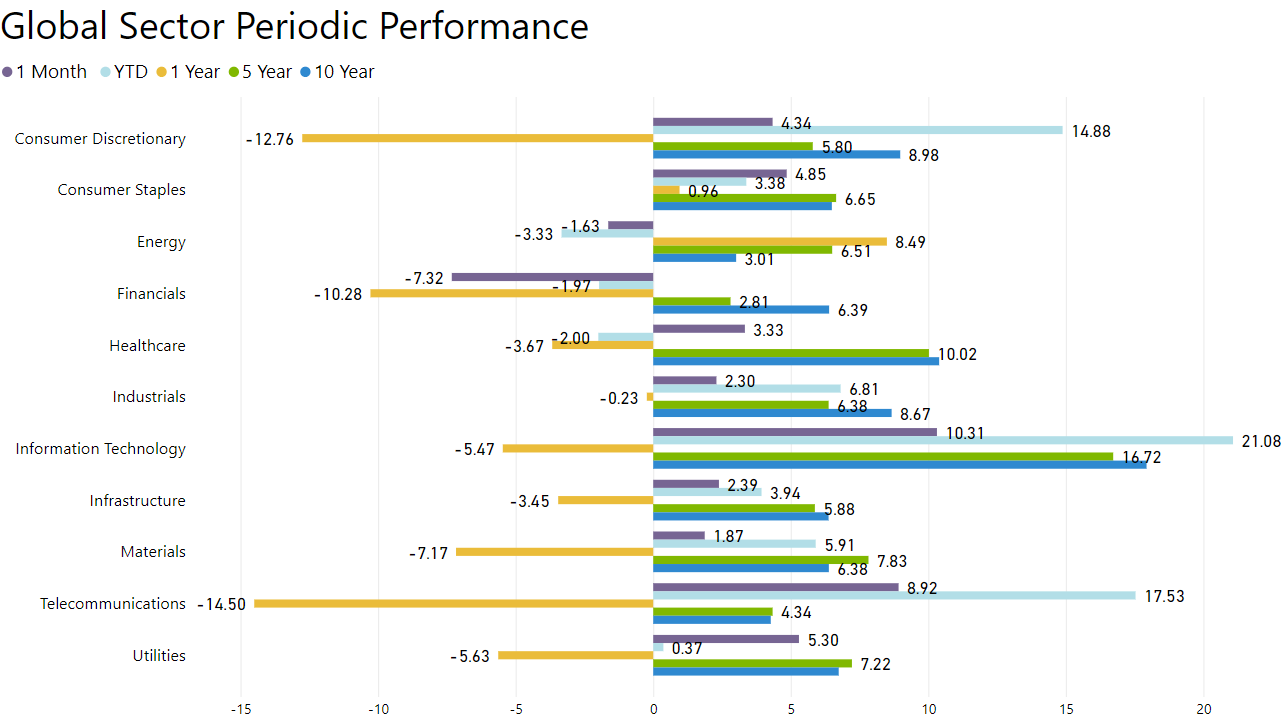
In March, value underperformed growth in the large-cap space and small-cap space. Momentum recorded a return of 2.92%. Value stocks across the world continue to trade at large discounts relative to growth stocks. Value-oriented sectors such as energy, financials, and materials may still have much more room to run.
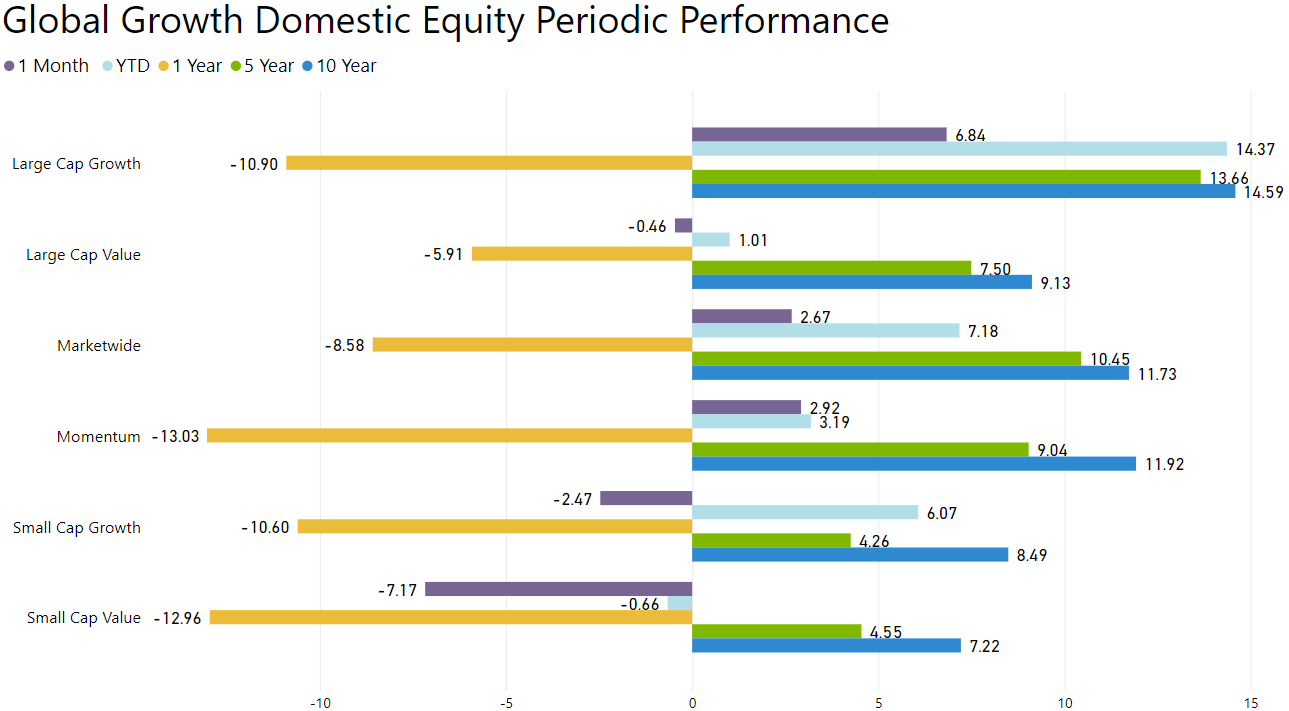
In the international developed markets, value underperformed growth in the large-cap space and small-cap space for the month. Momentum recorded a return of 1.49% while small-cap emerging market stocks posted a return of 1.08%. Valuations of value stocks are still very low relative to growth stocks in both international developed and emerging markets, which is consistent with the US market. Rising interest rates may also pose more of a risk to growth stocks than value stocks.
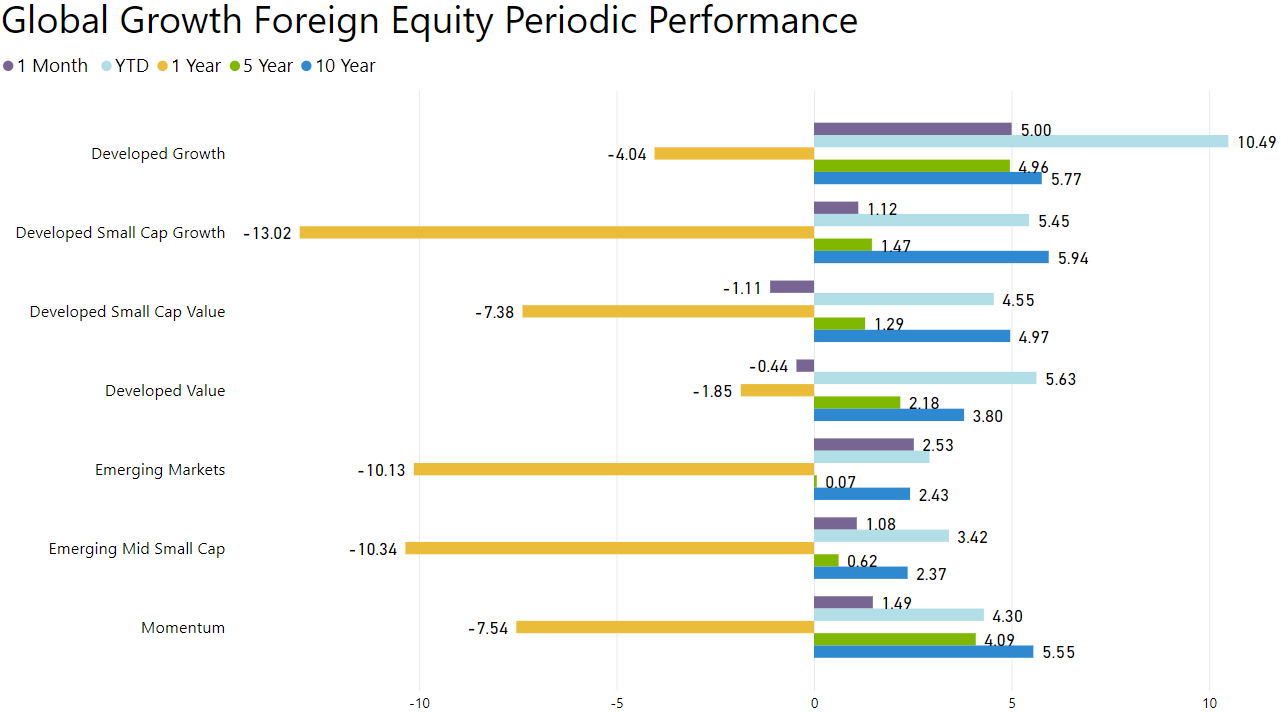
In March, the three-month Treasury bill index returned 0.43%. From the beginning of 2022 through the end of March 2023, the annualized interest rate on the 90-day Treasury bill increased from 0.08% to 4.95%. Savers are now getting paid much more in interest. However, they still face low real interest rates due to inflation remaining high as the CPI increased by 5.99% over the past year through the end of February. This means the real return to cash investors is still negative even before considering taxes.
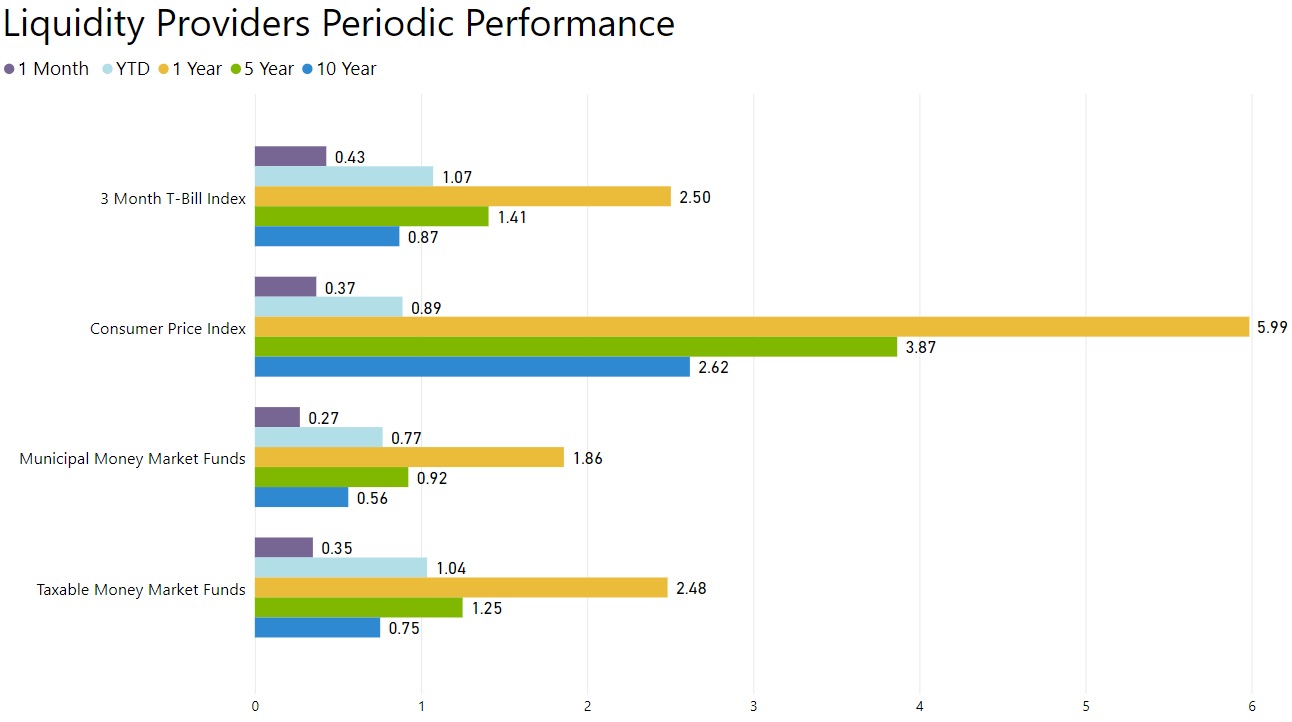
The returns of deflationary hedges were mostly positive for the month. The Bloomberg Barclays U.S. Agg Bond Index returned 2.5% for the month. In March, interest rates decreased, which caused the rally in the fixed income markets. Long-term bonds benefited the most. Leveraged loans and high yield bonds lagged the market. These less creditworthy borrowers may face difficulties meeting their financial obligations as they continue to roll their debt and pay higher interest rates.
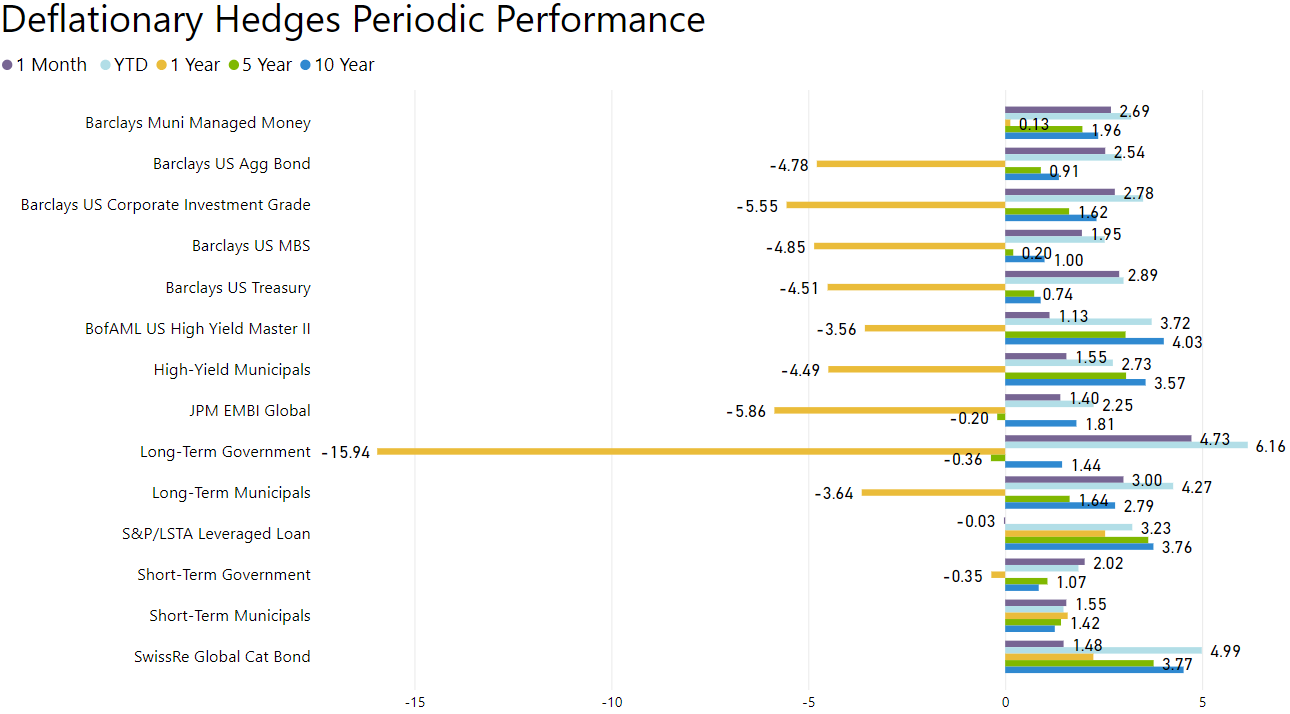
Inflation-sensitive investment returns were mixed for the month. Gold bullion and inflation-indexed bonds ex US returned 8.50% and 3.65%, respectively, in March. The Bloomberg Commodity index posted a return of -0.21%. Gold bullion is up 9.15% YTD. OPEC announced surprise oil output cuts, which could reduce the likelihood of lower oil prices. Oil markets continue to be tight, and consumers may face spikes in oil prices if demand picks up and supply remains constrained.
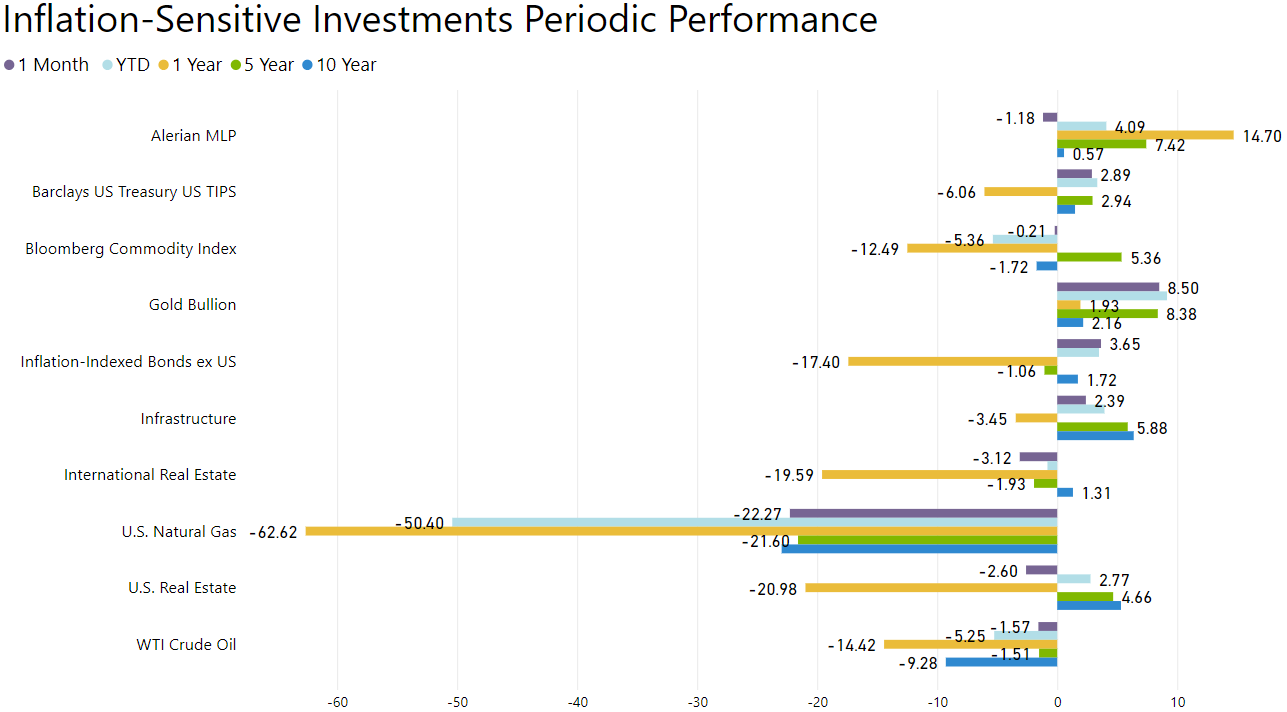
Over the past three months, the U.S. dollar depreciated against the Euro, British Pound, and Swiss Franc. Over the past year, the U.S. dollar strengthened against most currencies except for the Mexican Peso and Swiss Franc. The continuation of U.S. fiscal and trade deficits may weigh on the U.S. dollar in the medium-term to long-term. Gross federal debt to GDP stands at 121% and is forecasted to increase through the decade.
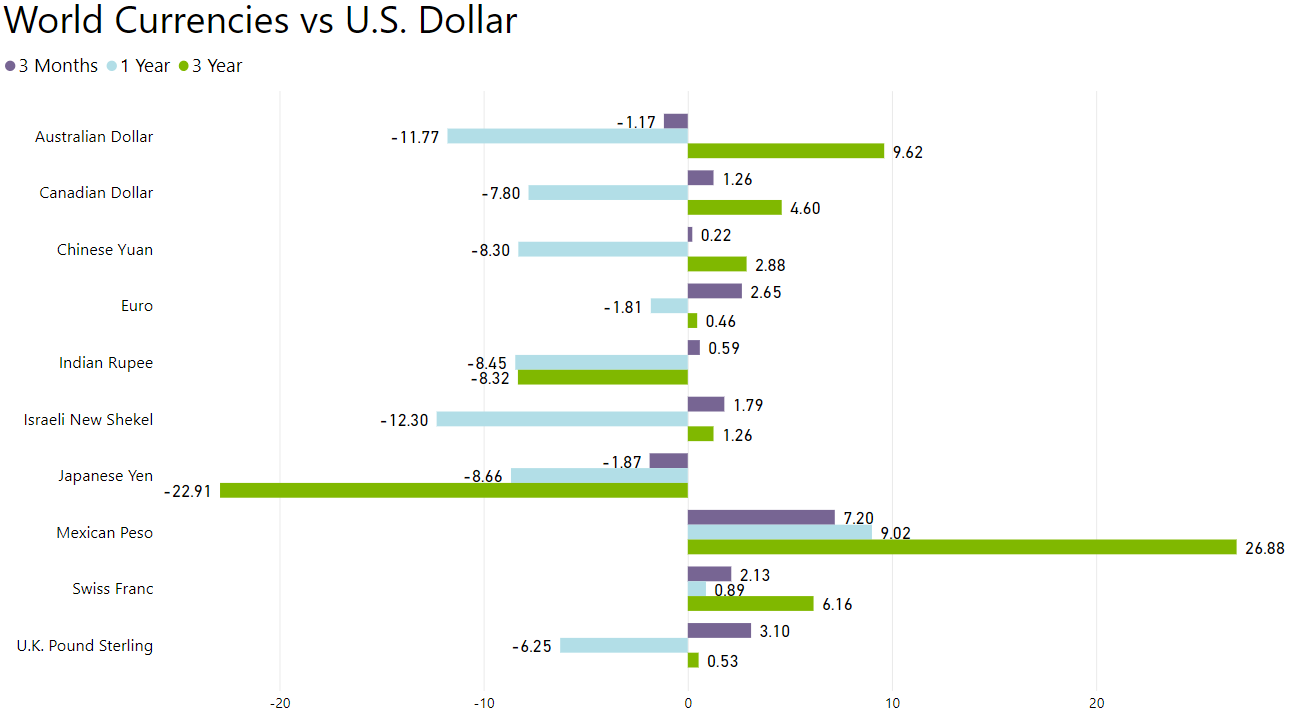

Brandon conducts investment due diligence for Versant Capital Management, and designs and implements tools and processes to support the firm’s research. His background in biology and finance help him to look at challenges from multiple angles, resulting in unique and well-rounded approaches and solutions.
Please remember that past performance may not be indicative of future results. Different types of investments involve varying degrees of risk, and there can be no assurance that the future performance of any specific investment, investment strategy, or product (including the investments and/or investment strategies recommended or undertaken by Versant Capital Management, Inc.), or any non-investment related content, made reference to directly or indirectly in this article will be profitable, equal any corresponding indicated historical performance level(s), be suitable for your portfolio or individual situation, or prove successful. Due to various factors, including changing market conditions and/or applicable laws, the content may no longer be reflective of current opinions or positions. Moreover, you should not assume that any discussion or information contained in this article serves as the receipt of, or as a substitute for, personalized investment advice from Versant Capital Management, Inc. To the extent that a reader has any questions regarding the applicability of any specific issue discussed above to his/her individual situation, he/she is encouraged to consult with the professional advisor of his/her choosing. Versant Capital Management, Inc. is neither a law firm nor a certified public accounting firm and no portion of the article content should be construed as legal or accounting advice. If you are a Versant Capital Management, Inc. client, please remember to contact Versant Capital Management, Inc., in writing, if there are any changes in your personal/financial situation or investment objectives for the purpose of reviewing/evaluating/revising our previous recommendations and/or services. A copy of the Versant Capital Management, Inc.’s current written disclosure statement discussing our advisory services and fees is available upon request.
